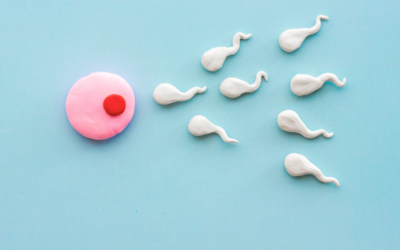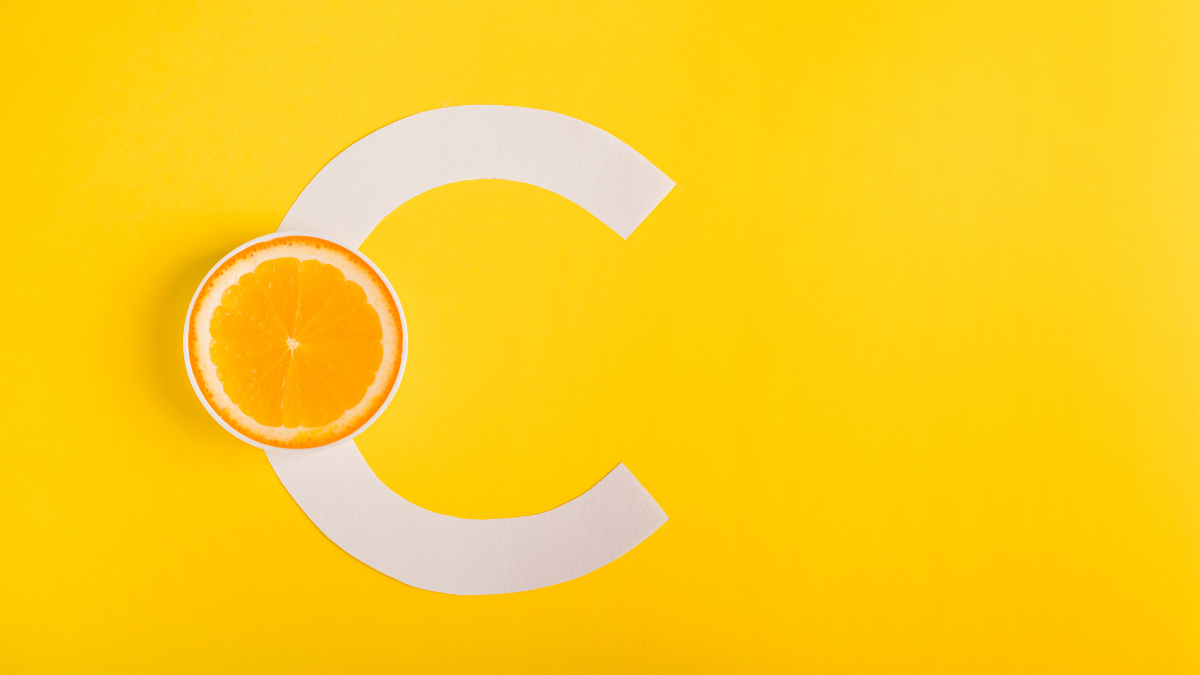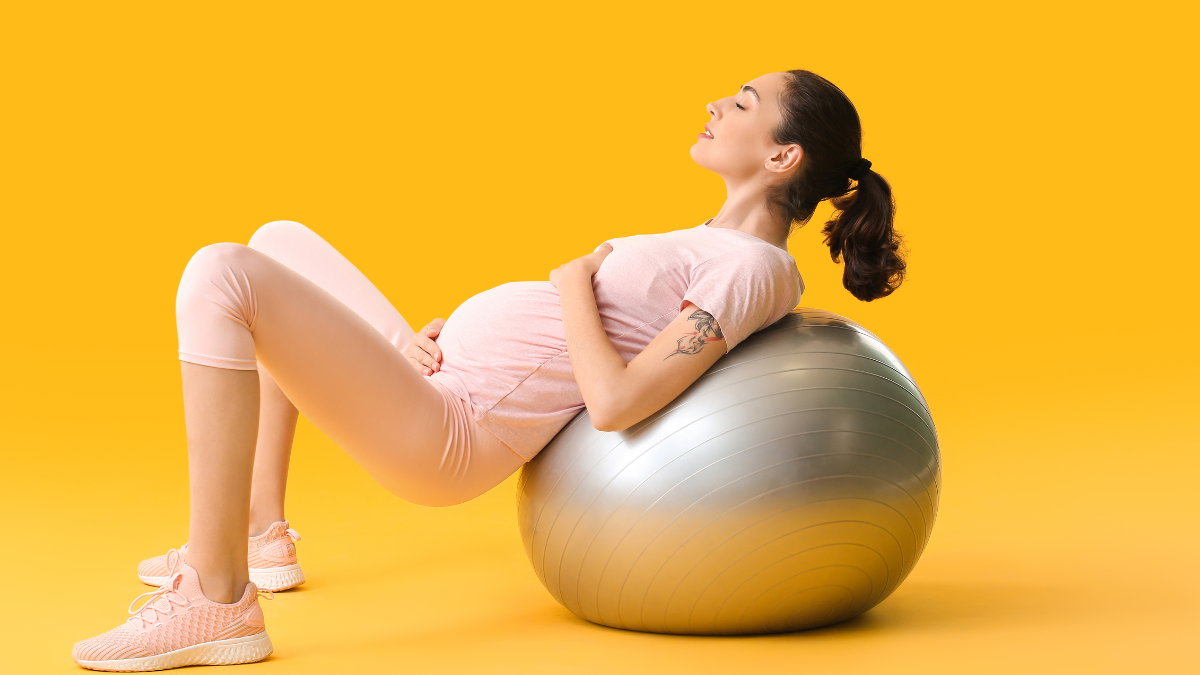You’ve made it to 12 weeks pregnant—what a milestone! You’re just about to wave goodbye to the first trimester and step into what many moms call the “easier” stage of pregnancy. By now, your baby’s major organs are formed, and they’re busy growing and getting stronger every day. You might start noticing your energy coming back, morning sickness fading, and maybe even the hint of a baby bump. It’s an exciting time to breathe a little easier, enjoy the changes, and start dreaming about the months ahead.
Table of Contents
How Many Months is 12 Weeks Pregnant?
At 12 weeks pregnant, you are roughly 3 months along in your pregnancy journey. While this might sound straightforward, it’s important to remember that pregnancy is more accurately measured in weeks rather than months. This is because each week brings specific and important changes in your baby’s growth and your own body’s adjustments.
You’re now approaching the end of your first trimester — which covers weeks 1 to 13. The exciting news is that you’re about to enter the second trimester, often referred to as the “golden period” of pregnancy. During this upcoming stage, many women notice:
- A boost in energy levels
- Reduced morning sickness
- A more visible baby bump
- Greater comfort compared to early pregnancy symptoms
So, if you’ve been counting down, you’re officially one-third of the way through your pregnancy, and the most delicate stage is almost behind you.
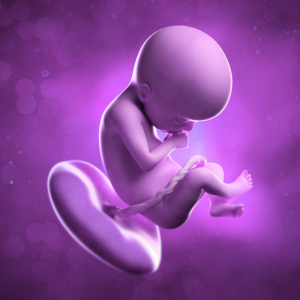
Baby’s Development at 12 Weeks Pregnant
At 12 weeks pregnant, your baby is no longer just a cluster of cells — they’re a tiny, fully formed human in miniature! While there’s still a lot of growing to do, most of the major development milestones have already been reached, and now your little one will focus on getting bigger and stronger.
Baby’s Size and Weight
- Length: About 2.1 inches (5.4 cm) from crown to rump
- Weight: Around 14 grams (½ ounce) — similar to a plum in size
- This might sound small, but your baby has already grown about 4 times their size from just a few weeks ago.
Physical Development Milestones
- Facial Features: The eyes have moved closer together, and the ears have shifted into their final positions on the sides of the head.
- Skin: Still paper-thin and almost transparent, but starting to thicken slightly.
- Arms and Legs: Fully formed with elbows, knees, wrists, and ankles — and they can bend and move.
- Fingers and Toes: Fully separated, with tiny fingernails and toenails starting to form.
- Heartbeat: Now beating at about 110–160 beats per minute, and can often be heard on a Doppler.
Organ and System Development
- Digestive system: The intestines are moving into their proper position inside the abdomen.
- Kidneys: Starting to produce small amounts of urine, which is released into the amniotic fluid.
- Brain: Developing rapidly, with nerve connections forming at a fast pace.
- Liver and spleen: Beginning to produce red blood cells.
Movement
Your baby is already moving inside the womb — stretching, kicking, and even making tiny fist movements. While you can’t feel these flutters yet, they’re a sign that your baby’s muscles and nervous system are developing beautifully.
Your Body at 12 Weeks Pregnant
Reaching 12 weeks pregnant means your body has been working incredibly hard for almost three months to support your growing baby. By now, many of the intense early pregnancy symptoms may start to ease, and you might feel a small boost in energy. Still, your body is undergoing major changes — both visible and behind the scenes.
Visible Changes
- Small Baby Bump: For some women, a tiny bump starts to appear as the uterus expands to about the size of a grapefruit.
- Fuller Breasts: Your breasts may feel heavier and more tender as milk ducts continue to develop.
- Pregnancy Glow: Increased blood volume and hormonal changes can make your skin look brighter and healthier.
Internal Changes
- Uterus Growth: It’s now moving up and out of your pelvic area, which may slightly relieve bladder pressure.
- Increased Blood Volume: Your heart is pumping more blood to deliver nutrients and oxygen to your baby.
- Hormone Shifts: Levels of hCG, estrogen, and progesterone remain high but start to stabilize, which can improve how you feel.
Common Symptoms at 12 Weeks Pregnant
While every pregnancy is unique, you might experience:
- Milder Morning Sickness: For many, nausea begins to fade around this time.
- Fatigue: You may still tire easily, so rest when you need to.
- Bloating & Constipation: Hormones relax your digestive tract, slowing things down.
- Headaches: Often caused by hormonal changes, dehydration, or skipped meals.
- Increased Discharge: A normal change that helps protect the vaginal area from infection.
Emotional and Mental Well-Being
- Many women feel relieved knowing the risk of miscarriage is lower after this week.
- You may feel more excited and ready to start telling family and friends your news.
- Hormonal changes can still trigger mood swings, so be gentle with yourself.

Emotional Changes at 12 Weeks Pregnant
At 12 weeks pregnant, your emotions may feel like they’re on a gentle rollercoaster — not as intense as the early weeks, but still shifting as your body adjusts to pregnancy hormones and the reality of becoming a parent.
Relief and Reassurance
Many women feel a sense of relief at this stage because they’ve passed the highest-risk weeks for miscarriage. Knowing your baby has completed most of the critical development can help you relax and feel more confident.
Excitement for the Future
With your first-trimester screening or ultrasound around this time, you might get your first clear glimpse of your baby. Seeing those tiny movements on the screen can spark a new level of excitement and bonding.
Mood Swings
Even though hormone levels are starting to stabilize, emotional ups and downs can still happen. You may feel happy and energized one day, then unexpectedly emotional the next. This is completely normal and not a sign of weakness — it’s your body adapting to big changes.
Bonding with Your Baby
Some mothers-to-be start talking to their bump or thinking about baby names now. Even though you can’t feel movements yet, visualizing your baby’s growth and future can strengthen your emotional connection.
Common Emotional Experiences at 12 Weeks Pregnant
- Pride: Feeling proud of how far you’ve come in your pregnancy journey.
- Nervousness: Wondering how life will change once your baby arrives.
- Increased sensitivity: Feeling more affected by movies, music, or even everyday conversations.
- Joy in sharing the news: Many parents choose this time to announce their pregnancy to family and friends.
💡 Tip: If mood swings feel overwhelming, try gentle self-care practices like prenatal yoga, meditation, journaling, or simply talking openly with your partner or a trusted friend.
Nutrition at 12 Weeks Pregnant
At 12 weeks pregnant, your baby is growing at a rapid pace, and the food you eat plays a direct role in their development. While the morning sickness of early pregnancy may be fading, your appetite and nutritional needs are increasing. Now is the perfect time to focus on a balanced, nutrient-rich diet that supports both you and your little one.
Why Nutrition Matters Now
- Your baby’s brain, bones, and organs are developing quickly.
- Your body’s blood volume is expanding, requiring more iron and protein.
- Eating well now lays the foundation for a healthy pregnancy and delivery.
Key Nutrients for 12 Weeks Pregnant
- Folic Acid (Vitamin B9)
- Why: Supports brain and spinal cord development; helps prevent neural tube defects.
- Sources: Leafy greens (spinach, kale), lentils, chickpeas, fortified cereals.
- Iron
- Why: Prevents anemia and supports increased blood production.
- Sources: Lean red meat, chicken, fish, tofu, beans, spinach.
- Tip: Pair iron-rich foods with vitamin C (like citrus fruits) for better absorption.
- Calcium
- Why: Builds strong bones and teeth for your baby, supports your bone health.
- Sources: Milk, yogurt, cheese, almonds, fortified plant-based milks.
- Protein
- Why: Essential for tissue growth and repair for both you and your baby.
- Sources: Eggs, poultry, fish, beans, lentils, nuts, seeds.
- Omega-3 Fatty Acids
- Why: Supports your baby’s brain and eye development.
- Sources: Salmon, chia seeds, walnuts, flaxseeds.
- Fiber
- Why: Helps prevent constipation, a common pregnancy discomfort.
- Sources: Whole grains, fruits, vegetables, legumes.
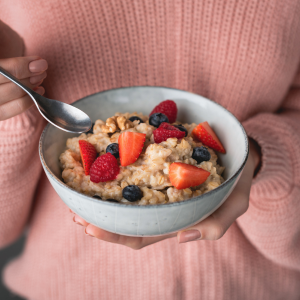
Foods to Avoid at 12 Weeks Pregnant
- Raw or undercooked meat, poultry, and eggs – May contain harmful bacteria like Salmonella or E. coli.
- Unpasteurized dairy products – Can carry Listeria, which may harm your baby.
- Certain seafood – Avoid high-mercury fish like shark, swordfish, king mackerel, and tilefish.
- Raw seafood and sushi – Risk of parasites and bacteria.
- Deli meats and hot dogs – Only eat if reheated until steaming to kill bacteria.
- Raw sprouts – Can harbor harmful bacteria.
- Unwashed fruits and vegetables – Always wash thoroughly to remove pesticides and germs.
- Excess caffeine – Limit to under 200 mg per day (about one 12-oz cup of coffee).
- Alcohol – No safe amount during pregnancy.
Checklist for 12 Weeks Pregnant
At 12 weeks pregnant, you’re almost at the end of your first trimester — and there are a few important things you can do this week to stay on top of your pregnancy health and planning. Think of this as your weekly pregnancy to-do list.
1. Attend Your First Trimester Screening
- If you haven’t already, schedule your NT (Nuchal Translucency) scan or combined first-trimester screening.
- This ultrasound measures fluid at the back of your baby’s neck and helps screen for certain chromosomal conditions.
2. Keep Taking Prenatal Vitamins
- Continue your daily prenatal supplements with folic acid, iron, and DHA.
- Even if your diet is healthy, supplements ensure you meet your baby’s nutritional needs.
3. Stay Hydrated
- Aim for 8–10 glasses of water a day.
- Carry a water bottle with you to sip regularly.
4. Start Gentle Pregnancy Exercises
- Walking, prenatal yoga, or swimming can improve circulation, boost energy, and reduce stress.
- Always check with your healthcare provider before starting new workouts.
5. Wear Supportive Clothing
- Invest in a comfortable, well-fitting bra to support your growing breasts.
- Consider maternity leggings or looser waistbands if you’re feeling tightness around your belly.
6. Begin Planning Your Pregnancy Announcement
- Many parents wait until after the 12-week mark to share their news, as miscarriage risk is lower now.
- Whether it’s a simple phone call or a creative photo, make it special for you.
7. Focus on Balanced Meals
- Try to get a mix of protein, complex carbs, healthy fats, fruits, and vegetables at each meal.
- Avoid long gaps between meals to keep your energy levels steady.
8. Track Your Symptoms
- Keep a small journal or use a pregnancy app to note symptoms, mood, and questions for your doctor.
💡 Pro Tip: This week is a great time to start a pregnancy memory journal — jot down how you’re feeling, what you’re craving, and your thoughts as you near the end of the first trimester. You’ll love looking back on it later.
12 Weeks Pregnant: Baby Size Fruit Comparison
One of the most exciting parts of pregnancy is imagining how big your baby is each week — and fruit comparisons make it easier (and cuter!) to picture your little one’s growth.
At 12 weeks pregnant, your baby is about the size of a plum — small enough to fit in the palm of your hand, yet already a perfectly formed mini human.
Baby’s Stats at 12 Weeks
- Length: Around 2.1 inches (5.4 cm) from crown to rump
- Weight: About 14 grams (½ ounce)
- Shape: Proportions are becoming more balanced, with the head making up about one-third of the total body length.
Fun Fruit Growth Journey (Weeks 8–13)
- Week 8: Raspberry
- Week 9: Cherry
- Week 10: Kumquat
- Week 11: Fig
- Week 12: Plum
- Week 13: Peach
Seeing your baby go from tiny berry to juicy plum in just a month shows how quickly things are changing inside your belly!
💡 Tip: Some parents use a weekly fruit photo (holding the fruit in their hand or next to their belly) as a fun way to document pregnancy progress for a baby book or social media announcement.
Miscarriage Risk at 12 Weeks Pregnant
One of the biggest emotional milestones at 12 weeks pregnant is knowing that the risk of miscarriage is now much lower than in the early weeks.
Why the Risk Drops After 12 Weeks
- By this stage, your baby’s major organs and body systems are formed.
- The placenta is now fully developed and functioning, providing stable support for your baby.
- Most chromosomal issues or early developmental problems — the leading causes of miscarriage — occur before week 10.
Statistics for Reassurance
- Before 6 weeks: Miscarriage risk is around 10–15% for confirmed pregnancies.
- At 12 weeks, the Risk drops to around 1–3% in healthy pregnancies.
- These numbers can vary depending on maternal health, age, and medical history, but overall, the 12-week mark is considered a safer stage.
When to Seek Medical Attention
Even though the risk is low, it’s important to contact your healthcare provider if you experience:
- Heavy vaginal bleeding (especially with clots)
- Severe abdominal or back pain
- Sudden loss of pregnancy symptoms (like breast tenderness or nausea) in early pregnancy, especially if accompanied by spotting
💡 Reassurance Tip: Passing the 12-week milestone is a reason to celebrate and breathe a little easier. While it’s still important to take care of your health, this stage marks the beginning of a more stable and comfortable phase of pregnancy for many women.
What are the Signs of a Healthy Pregnancy at 12 Weeks?
At 12 weeks pregnant, your baby has passed many crucial stages of development, and your body is adapting beautifully to support this new life. While every pregnancy is unique, certain signs often indicate things are progressing well.
1. Steady Fetal Growth
- Your baby is now about the size of a plum and weighs around 14 grams.
- Ultrasounds or check-ups show your baby’s growth in line with expected milestones.
2. Strong Fetal Heartbeat
- By 12 weeks, your baby’s heartbeat can often be heard on a Doppler.
- A normal range is 110–160 beats per minute, which is much faster than your own.
3. Decreasing Morning Sickness
- Many women notice nausea and vomiting beginning to ease at this stage.
- This can be a sign that hormone levels are stabilizing, which is common as you near the second trimester.
4. Increased Energy Levels
- If you’ve been feeling exhausted during the first trimester, a small boost in energy is often a healthy sign.
- You might find yourself more motivated to walk, cook, or prepare for your baby’s arrival.
5. Consistent Pregnancy Symptoms
- Breast tenderness, mild bloating, and increased vaginal discharge are all normal at this stage.
- Feeling hungry more often can also be a sign your baby is growing and needs more nutrients.
6. Positive Feedback from Check-Ups
- Your healthcare provider confirms healthy growth, appropriate weight gain, and no signs of complications.
Can I Feel My Baby at 12 Weeks Pregnant?
At 12 weeks pregnant, your baby is already moving — stretching, kicking, and even making tiny swallowing motions. However, at this stage, they’re still too small for you to feel those movements.
When You’ll Likely Feel Movement
- Most women feel the first flutters, called quickening, between 16 and 22 weeks.
- If this is your first pregnancy, you might notice them closer to the 20–22 week mark.
- If you’ve been pregnant before, you may feel them a little earlier because you know what to expect.
Why You Can’t Feel Baby Yet
- At 12 weeks, your baby is only about 2 inches long and weighs just half an ounce.
- The uterus is still low in your pelvis, and the baby’s movements are cushioned by the amniotic fluid and uterine walls.
What You Might Feel Instead
- Bloating or gas bubbles (often mistaken for baby kicks in early weeks)
- Mild stretching sensations as your uterus grows
- Round ligament twinges — brief, mild pains caused by ligaments stretching to support your uterus
💡 Tip for Bonding: Even if you can’t feel movements yet, try placing your hand on your belly when you relax, talking to your baby, or playing soft music. It’s a lovely way to connect early on.
Does Your Belly Show at 12 Weeks Pregnant?
At 12 weeks pregnant, your baby bump may be starting to make its debut — but how much you’re showing can vary a lot from one woman to another.
Why Some Women Show Earlier
Several factors influence whether you start to “show” at 12 weeks:
- First-time vs. experienced moms: If it’s your first pregnancy, your abdominal muscles are usually firmer, so you might show later. Moms who’ve been pregnant before often notice a bump earlier because their muscles have stretched before.
- Body type: Petite women or those with a shorter torso may show sooner.
- Bloating: Hormonal changes can cause bloating, which might make your belly appear bigger even before your uterus is showing.
- Uterus position: A uterus that tilts forward may cause an earlier visible bump.
What’s Happening Inside
By 12 weeks, your uterus is about the size of a grapefruit and is starting to rise out of the pelvis. This shift can make your lower belly look slightly fuller, especially when standing.
Bump Growth Tips
- Wear comfortable clothing — maternity leggings or loose waistbands can prevent pressure on your belly.
- Take weekly bump photos — starting now helps you see gradual changes you might not notice day to day.
- Stay active with gentle pregnancy-safe exercises to keep your core and posture healthy.
💡 Fun fact: Many women choose this time to take their first official bump photo, especially if they’re planning a pregnancy announcement.
Tips for a Healthy 12-Week Pregnant Journey
- Eat a balanced diet: Include leafy greens, whole grains, lean proteins, dairy, nuts, and fruits to support you and your baby’s growth.
- Stay hydrated: Aim for at least 8–10 glasses of water daily to aid digestion, prevent constipation, and keep energy levels steady.
- Take prenatal vitamins: Continue folic acid, iron, and DHA supplements as recommended by your doctor.
- Exercise safely: Try walking, swimming, or prenatal yoga to maintain strength, flexibility, and circulation.
- Get enough rest: Aim for 7–9 hours of quality sleep; use a pregnancy pillow if needed for comfort.
- Manage stress: Practice breathing exercises, meditation, or gentle stretching to promote relaxation.
- Attend prenatal check-ups: Keep all scheduled appointments to track your baby’s development and address concerns early.
- Avoid harmful substances: Say no to alcohol, smoking, raw seafood, unpasteurized products, and excessive caffeine.
- Listen to your body: Rest when tired, eat when hungry, and report any unusual symptoms to your healthcare provider.
Conclusion
Reaching 12 weeks pregnant is a big step—you’ve made it through the early weeks and are about to enter a stage that many moms find more comfortable and enjoyable. Your baby is growing stronger every day, and you may start to notice exciting changes in your own body. Keep focusing on healthy habits, listen to your body, and enjoy this special time. The second trimester is just around the corner, bringing even more milestones to look forward to.

